Tag: trial
Trial: Atlanta Daily World and Norfolk Journal and Guide
The Library has trial access to the historical African American newspapers, Atlanta Daily World and Norfolk Journal and Guide until July 29.
The Library’s trial of Pittsburgh Courier has been extended until July 20.
Primary Sources: Presidential Recordings Digital Edition
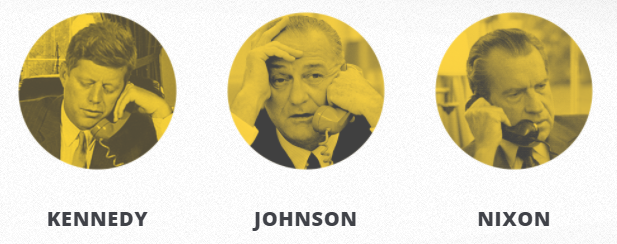
The Library has acquired Presidential Recordings Digital Edition, an online portal for annotated transcripts of telephone conversations of Presidents Johnson, Kennedy, and Nixon. Recordings and transcripts are presented together. The transcripts are searchable and browseable by administration, series, speaker, date, place, and duration.
Trial: Struggles for Freedom – Southern Africa
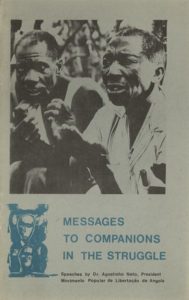 Until February 18, the Library has a trial of Struggle for Freedom: Southern Africa, a JSTOR collection of materials from archives and libraries throughout the world documenting colonial rule, dispersion of exiles, international intervention, and the worldwide networks that supported successive generations of resistance within the region.
Until February 18, the Library has a trial of Struggle for Freedom: Southern Africa, a JSTOR collection of materials from archives and libraries throughout the world documenting colonial rule, dispersion of exiles, international intervention, and the worldwide networks that supported successive generations of resistance within the region.
According to their site, the resource “consists of 76 different collections of more than 20,000 objects and 190,000 pages of documents and images, including periodicals, nationalist publications, records of colonial government commissions, local newspaper reports, personal papers, correspondence, UN documents, out-of-print and other particularly relevant books, pamphlets, speeches, and interviews with those who participated in the struggles.”
Trial: New Oxford Shakespeare Online
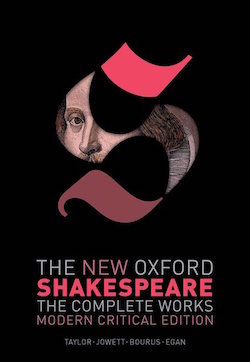 The Library has a trial to New Oxford Shakespeare Online through January 31, 2018. This resource includes digital access to the following titles:
The Library has a trial to New Oxford Shakespeare Online through January 31, 2018. This resource includes digital access to the following titles:
- New Oxford Shakespeare Modern Critical Edition: complete full-text plays with modernized spellings, annotations, and extras. (Library also has in Print.)
- New Oxford Shakespeare Critical Reference Edition: complete full-text plays with original spellings. (Library will also have in Print.)
- New Oxford Shakespeare Authorship Companion: secondary research on attribution and authorship. (Library also has in Print.)
For comparison, other digital versions of the plays include Folger Digital Shakespeare Texts and Internet Shakespeare Editions. See more about what the Library offers on Shakespeare at the Literature in English Library Research Guide.
We welcome your feedback about the New Oxford Shakespeare Online. Share your feedback here.
Trial: Colonial America, with handwritten text recognition
Adam Matthew Digital (AMD) has completed three of five modules of Colonial America, an online resource that will include all 1,450 volumes of the CO 5 series from The National Archives, UK, covering the period 1606 to 1822. The Library currently has trial access to the three modules until October 16, 2017.
It is with the third module of Colonial America that AMD has implemented a technology that allows for full text searching of handwritten documents. The Handwritten Text Recognition (HTR) application uses algorithms and artificial intelligence to determine possible combinations of characters in manuscripts.
The default search will search both metadata applied to documents and their text. When results are found in the text, they are displayed as snippets.
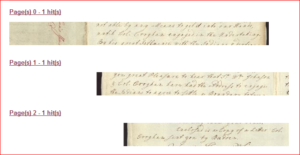
Clicking on a hit will take you to the page where the word appears.
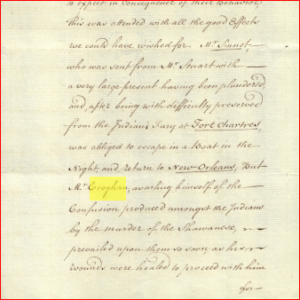
This search function is ground-breaking, but not 100% accurate. I’ve searched for words that exist in a document and have retrieved no results. I have also searched for words that were written sloppily or with a long s and have retrieved results.
I am interested in your feedback on both the value of the database and your successes (or failures) with full-text searches. Email me at dorner@berkeley.edu.
(Please note that PDF downloads are not available during the trial.)
Trial: Women and Social Movements in Modern Empires since 1820
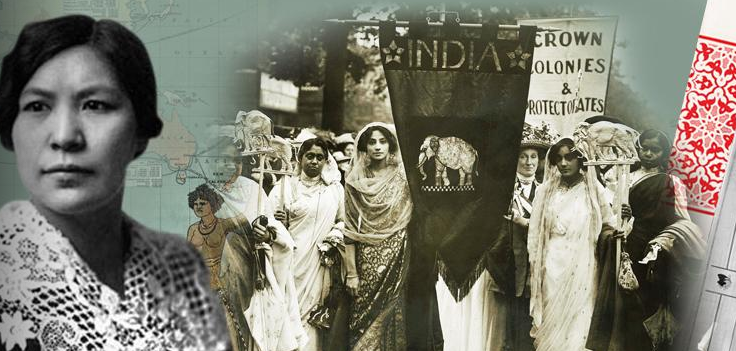
Through April 18, 2017, The Library has a trial of Women and Social Movements in Modern Empires since 1820, a supplement to Women and Social Movements, International. Documents included in this digitized resource explore prominent themes in world history since 1820: conquest, colonization, settlement, resistance, and post-coloniality, as told through women’s voices.
For more information about the content included in this collection, click HERE.
Trial: Four primary source modules from ProQuest
The Library will soon be acquiring four additional primary source collections from ProQuest. In the meantime, we have set up trial access to them until March 16.
FBI Confidential Files and Radical Politics in the U.S., 1945-1972
Southern Life and African American History, 1775-1915, Plantation Records, Part 2
Confidential U.S. State Department Central Files, Africa and Middle East, 1960-1969
Women at Work during World War II: Rosie the Riveter and the Women’s Army Corps
Trial: The Digital Karl Barth Library
The Digital Karl Barth Library – http://bart.alexanderstreet.com
The Digital Karl Barth Library supports a new generation of research into the works of one of the 20th century’s most influential theologians. The collection includes the original German version and the English translation of Karl Barth’s magnum opus, The Church Dogmatics, in its entirety. Also included is Barth’s Gesamtausgabe, which includes hundreds of letters, sermons, lectures, conversations, and academic writings.
For more information about the content included in this collection, click HERE.
For general help, including navigation instructions and search tips, click HERE.
The trial will run through March 8th.
Please send your comments and feedback to me at dorner@berkeley.edu
Trial: East India Company (digital archive)
The Library has a trial of the Adam Matthew Digital digital archive, East India Company, until February 23rd.
East India Company offers access to a unique collection of India Office Records from the British Library, London. Containing royal charters, correspondence, trading diaries, minutes of council meetings and reports of expeditions, among other document types, this resource charts the history of British trade and rule in the Indian subcontinent and beyond from 1600 to 1947.
*Please note that PDF download options are not available during trials.
Please send any feedback you have about the resource to me at dorner@berkeley.edu.
Current Trial: Drama Online
Drama Online (Bloomsbury) is an online resource of primary and secondary sources for the study and performance of drama. It contains 1700 playtexts, 350 audio performances, and 150 hours of video. The platform has a web-based e-reader with page and line numbers that correspond to the print edition, download options, full text search, visualization tools including a Words and Speeches Graph and a Character Grid for each play, the ability to view lines for one specific character, genre, period, title, or playwright browsing, and annotation tools.
Content included:
* 1,100+ playtexts from Methuen Drama, Faber and Faber, and Arden Shakespeare, as well as contextual and critical background through scholarly works and practical guides.
* Productions from Shakespeare’s Globe On Screen
* Early modern drama titles staged and filmed specifically for educational use (Doctor Faustus, The Duchess of Malfi, Volpone and School for Scandal).
* L.A. Theatre Works audio collection
* Playscripts from theatre publisher Nick Hern
* BBC Drama Films
The trial will last until March 24th, and can be accessed at http://www.dramaonlinelibrary.com/
Please send your comments and feedback to sreardon at berkeley.edu.